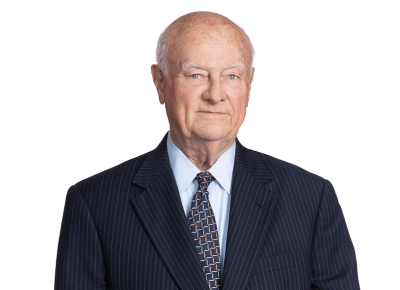Overview
Drawing on their considerable experience as appellate advocates and law clerks to various appellate court judges, Todd & Weld lawyers understand how appeals get decided. That wealth of experience enables our attorneys to advocate for clients’ positions persuasively and effectively with an eye toward how a ruling will impact the development of the law. Our clients’ cases often involve novel issues of first impression and result in landmark decisions resolving previously unsettled issues of law, including in such areas as domestic relations, professional liability, First Amendment, and employment law.
Clients rely on our appellate attorneys to analyze legal issues creatively and rigorously, to write sophisticated but readable briefs, and to use the limited time at oral argument to persuade judges on the most critical points in dispute. Other lawyers recognize Todd & Weld as a go-to appellate law firm. In fact, many of our appellate cases are referred by attorneys who handled the cases at the trial court level.
We practice regularly before the Massachusetts Supreme Judicial Court, Massachusetts Appeals Court, the 1st U.S. Circuit Court of Appeals, and other federal circuits. Our attorneys have also represented clients and appeared before the U.S. Supreme Court.
Our lawyers have achieved favorable results for appellate clients across a diverse range of legal issues, including these recent rulings:
- FBT Everett Realty, LLC v. Mass. Gaming Commission, 489 Mass. 702 (2022). Persuaded the Massachusetts Supreme Judicial Court to reverse a lower court’s dismissal on summary judgment of their client’s regulatory taking claim involving the site of the Encore casino.
- Judge Rotenberg Educ. Ctr., Inc. v. U.S. Food & Drug Admin, et al., 3 F.4th 390 (D.C. Cir. 2021). Persuaded D.C. Circuit to vacate FDA’s ban of electrical stimulation devices used to treat aggressive or self-injurious behavior because banning a medical device for a particular use regulates the practice of medicine in violation of 21 U.S.C. § 396.
- D’Allessandro v. Lennar Hingham Holdings, LLC, 486 Mass. 150 (2020). Answering a certified question from a U.S. District Court judge, the Massachusetts Supreme Judicial Court determined in favor of the firm’s client that the six-year time period for filing a lawsuit regarding common areas of an individual building is triggered when the building is substantially complete or is open for its intended use – regardless of how many buildings or how many development phases exist in a multi-building condominium complex.












